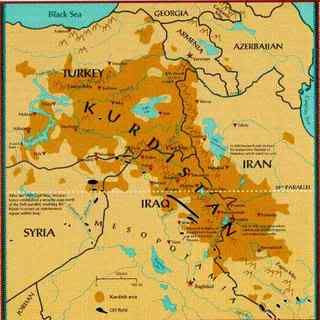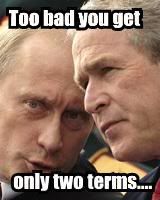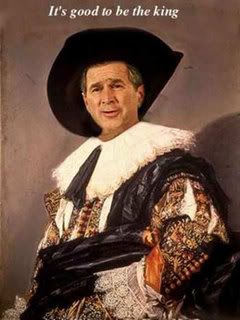
ANKARA, Turkey (AP) -- With Turkish-U.S. relations strained, Prime Minister Recep Tayyip Erdogan said Friday that Turkey would not be deterred by the diplomatic consequences if it decides to stage a cross-border offensive into Iraq against Kurdish rebels.
"If such an option is chosen, whatever its price, it will be paid," Erdogan told reporters in response to a question about the international repercussions of such a decision, which would strain ties with the United States and Iraq. "There could be pros and cons of such a decision, but what is important is our country's interests."
Erdogan also had harsh words for the United States, which opposes a Turkish incursion into northern Iraq -- one of the country's few relatively stable areas.
"Did they seek permission from anyone when they came from a distance of 10,000 kilometers and hit Iraq?" he said. "We do not need anyone else's advice."
Analysts say Turkey could be less restrained about defying the United States because of a congressional committee's approval of a resolution labeling the mass killings of Armenians around the time of World War I as genocide.
"Democrats are harming the future of the United States and are encouraging anti-American sentiments," Erdogan said. Democratic leaders in the House of Representatives support the resolution.
Erdogan said Turkey was ready to sacrifice good ties with Washington if necessary.
The Asian Times:
In the face of ambushes on Sunday linked to the PKK, in which more than 10 Turkish soldiers were killed, and the subsequent escalation of tension with Turkey, the Iraqi Kurdish leadership appears to be facing the situation with a certain aplomb - at least in its rhetoric. In a telephone interview, the foreign minister for the Kurdish area of Iraq, Falah M Bakir, said, "Of course we understand Turkey’s concerns, but we don’t believe that crossing the border will effectively address them."
Bakir, who is in New York for a meeting of the UN General Assembly, said that his regional government and Turkish officials are currently reduced to communicating with each other through the media. In the wake of the recent elections in Turkey, Bakir said he and his colleagues had held out the hope that a constructive dialogue with Turkey would begin. "Unfortunately there is no dialogue right now. But we are ready for talks."
When asked about Turkey’s concerns that Iraqi-Kurdish officials are not doing enough to counter the PKK, Bakir said that the group is trying to further its goals through peaceful, political aims. But when asked, he did not deny that the group could be responsible for the recent attacks in Turkey. He added that the PKK is spread out in a mountainous terrain on the border, does not have formal bases that can be attacked, and is not part of the official political structure of his regional government.
[snip]
Still, an escalation of Turkish military activity within the Kurdish region of Iraq could be risky. If the Turkish military hits civilians, Iraq would respond to Turkey, potentially causing far-reaching problems in bilateral relations. And then there is the question of civil-military relations in Turkey. The current government, with its ostensible Islamic leanings, already has strained relations with the military, which is seen by some as the caretaker of secularism in Turkey.
[snip]
For the United States, balancing the interests of the generally pro-American Iraqi Kurds, whose region is the only showcase of stability in Iraq, and NATO ally Turkey, will continue to demand diplomatic dexterity, noted Barkey. Such dexterity is something which is in short supply in the lower levels of the US State Department, at the assistant-secretary level, he added.
And there is another fresh wrinkle. Turkey warned on Thursday that relations with the US would be harmed by a US House committee’s approval on Wednesday of a non-binding resolution calling the 1915 massacres of Armenians by Ottoman Turks "genocide". The 27-21 decision by the House of Representatives foreign affairs committee comes before a vote in the full House in coming weeks, and occurred in spite of a warning from President George W Bush that cooperation with Turkey and the fate of US troops in Iraq could be at stake.
Update:
Bryan at Why Now? offers an excellent synopsis on Turkey's history and the
recall of the Turkish ambassador from the United States.


